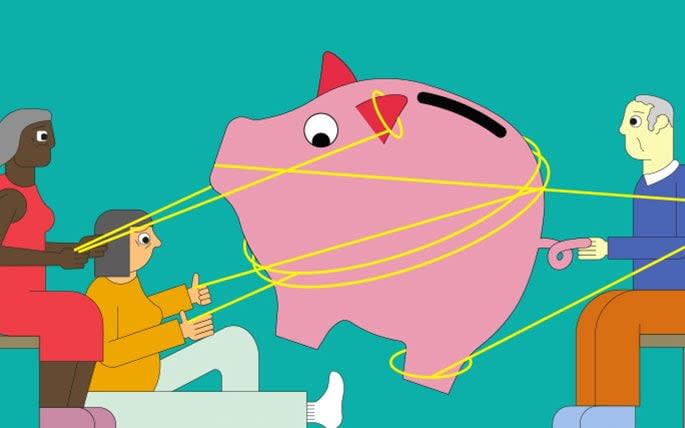Increasing numbers of women over 50 forced into retirement because of coronavirus

Women over the age of 50 have been hardest hit by the economic impact of coronavirus, new research has revealed, with just under 100,000 being forced into early retirement since the start of the pandemic.
A new study by jobs site Rest Less found that economic inactivity rates fell in all female age groups apart from the over 50s, which has risen by 1.3 per cent since the start of the crisis.
Founder of the recruitment website Stuart Lewis said that the figures coupled with a "large pension savings gap" would leave many women in a "financially precarious position ahead of retirement".
He said: “The gender pay gap is at its widest for women in their 50s. Years of an earnings gap has led to a large pension savings gap between men and women which leaves many women in their 50s and 60s in a financially precarious position ahead of retirement.
“In a tough labour market, it can be much harder for people to return to the workplace if they have been out of the workforce for any length of time. Women are far more likely to have taken time out to care for children, parents or a relative than their male counterparts, placing them at a natural disadvantage to other candidates who never left the workforce.”
Rest Less’ research found that just under 200,000 workers aged 50 and over have been forced into an early retirement since the coronavirus pandemic began.

Using data from the Office for National Statistics (ONS), it found that the number of over 50s dropping out of the workforce had increased by 1.4 per cent since the start of the pandemic, with the age group seeing higher economic inactivity than any other.
Meanwhile, economic inactivity dropped for those aged between 18 and 34 since the start of the pandemic in March.
Mr Lewis said that age discrimination in the workplace was “rife prior to the pandemic, and is only set to increase in the wake of the crisis”.
He said: “In the wake of the toughest job market in decades, there has been a significant rise in the number of workers over 50 who have lost hope in finding a job and feel forced into an early retirement that many simply cannot afford.
“By contrast, among 18 to 24 year olds, there has been a small increase in those classed as economically active - those in work, or actively looking for work - from before the pandemic.”
There has been a reduction in student numbers over the pandemic, with 43,000 giving up on further education since coronavirus struck.
Mr Lewis claimed that the figures suggest “some could be choosing to switch studying for work in a post pandemic economy”.
“This could be an early warning indicator for many higher education establishments that student numbers will come under pressure in the autumn term,” he added.
Meanwhile, a new report from the Centre for Social Justice (CSJ) claims that the apprenticeship system is “neglecting” young workers, with low skilled individuals facing a “barren jobs market” as a result of the coronavirus pandemic.
The CSJ claims that older, more qualified Britons are the main beneficiaries of the system, warning the UK faces a “lost generation” of young workers without significant intervention.

The think tank warns that apprenticeships could be facing a steep decline without private and public sector intervention, as only 39 per cent of apprenticeships continued as normal throughout lockdown.
It finds that new apprenticeships are increasingly taken up by highly skilled individuals rather than school leavers and claims a fifth of employers signed up to the apprenticeship levy scheme are merely rebadging existing training or accrediting for existing skills.
Andy Cook, the Chief Executive of the CSJ, said: “Covid-19 threatens the lives and livelihoods of millions of Britons, especially the job prospects of young people, who risk becoming a lost generation.”
Watch video below
The latest unemployment figures, which will be published by the ONS this week, are expected to hit levels not seen since the 1980s.
It is expected that unemployment could be higher than 2.6 million, with economists forecasting a rise in benefit claimants of between 55,000 and 60,000.

